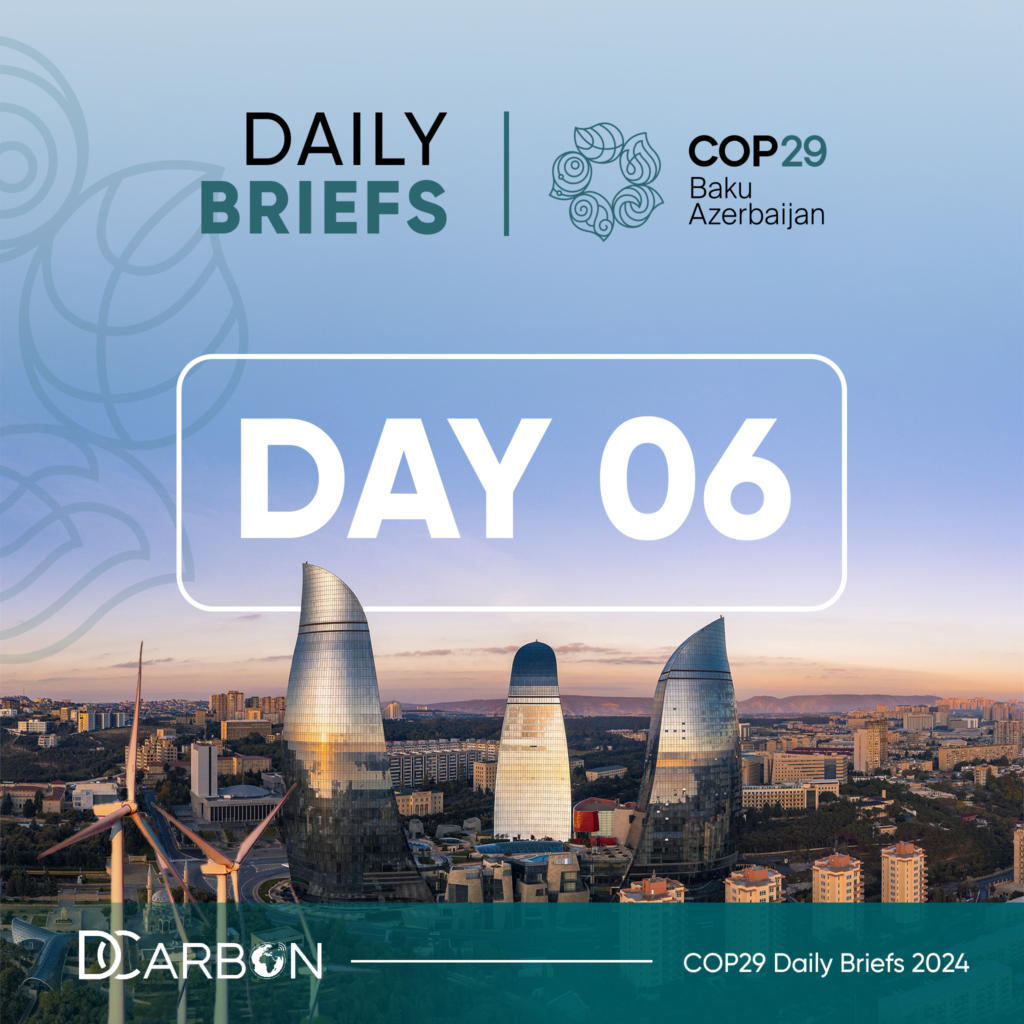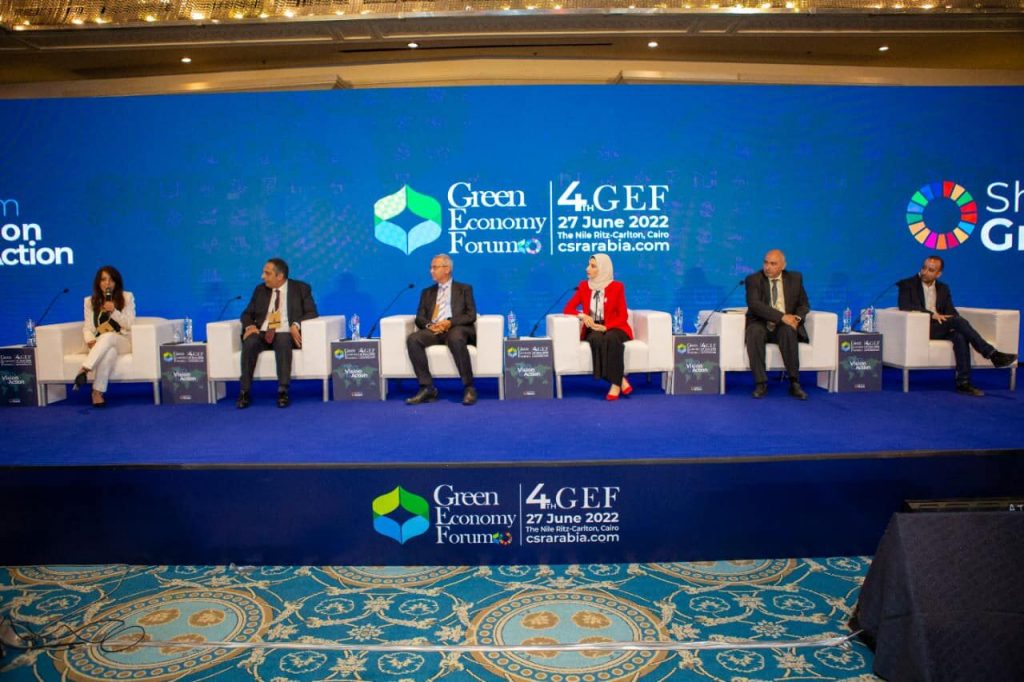Blue Zone
Launching the COP29 Declaration on Green Digital Action at the Inaugural Digitalisation Day
The COP29 Presidency marked a historic moment with the launch of the inaugural Digitalisation Day that brought together over 90 governments and 1,000 stakeholders from the digital technology sector, encompassing representatives from companies, civil society organizations, in addition to international and regional entities. COP29 President Mukhtar Babayev described the day as a pivotal step in climate action: “The first-ever Digitalisation Day at COP29 marks a new chapter in climate action, embedding digital technology as a transformative tool,” he said.
The day included a High-Level Roundtable titled “Digital Action Path for a Green World,” with key figures such as Nigar Ardaparai, COP29 High-Level Champion, Rashad Nabiyev, Minister of Digital Development and Transport of the Republic of Azerbaijan, and Doreen Bogdan-Martin, Secretary-General of the International Telecommunication Union, along with representatives from 13 governments from around the world. The leaders engaged in discussions on how digital technologies could drive transformation in climate action. The roundtable endorsed a declaration that focused on promoting climate-positive digitalization, lowering emissions in the Information and Communication Technology sector, and improving access to green digital technologies.
ITU Secretary-General Doreen Bogdan-Martin highlighted the Declaration’s potential, noting: “This milestone moment for Green Digital Action should propel us forward with the shared belief that we can and must reduce the environmental footprint of digital technologies.”
Strengthening Climate Information and Multi-Hazard Early Warning Systems for Increased Resilience
The COP29 Presidency, in collaboration with Azerbaijan’s Ministry of Ecology and Natural Resources, hosted a high-level event that focused on strengthening climate information and multi-hazard early warning systems (EWS) to enhance resilience against climate disasters. This event was organised in partnership with the World Meteorological Organization, the United Nations Office for Disaster Risk Reduction, the International Telecommunication Union, and the Green Climate Fund.
Deputy Minister of Ecology and Natural Resources, Umayra Taghiyeva, stressed that the success of EWS relies not only on government efforts but also on the active and sustained engagement of various stakeholders, including local communities, national and international organizations, the public and private sectors, and civil society. She added that the COP29 Presidency introduced several initiatives that aimed at boosting climate resilience through multi-hazard early warning systems. These initiatives include the Multi-Sectoral Actions Pathways (MAP) to Resilient and Healthy Cities, the Baku Dialogue on Water for Climate Action, and the Green Digital Action Initiative.
Despite these advancements, many countries, especially Least Developed Countries (LDCs) and Small Island Developing States (SIDS), still lack effective EWS. In this context, Taghiyeva highlighted: “EWS must be available to everyone, including LDCs and SIDS”, underlining the critical need for global investment and collaboration to ensure these systems are available to every vulnerable community.
Digital Innovation: Paving the Way for Safeguarding Biodiversity
During the high-level roundtable on Green Digital Action, Tatiana Molcean, Executive Secretary of the UN Economic Commission for Europe, stated that it is impossible to meet climate targets without addressing biodiversity loss. She highlighted the crucial role of digital technologies in enhancing management efforts, facilitating faster data sharing, and promoting knowledge dissemination to reduce biodiversity loss.
Equitable and Inclusive Financial Framework to Propel Climate Action
COP29 President Mukhtar Babayev stressed the urgent need for a fair and inclusive financial architecture to drive climate action during the Presidency’s Open Dialogue with NGO Constituencies and Parties. Babayev stressed that the new financial structure must be equitable, especially for the most vulnerable communities. He called for addressing the persistent barriers to mobilizing sufficient climate finance, including high investment risks in developing countries. He also stressed the need for coordinated efforts from all sectors, urging the private sector to contribute through capital, innovation, and expertise. Babayev called for international financial institutions to provide technical assistance and concessional finance while developing mechanisms to reduce risks in vulnerable regions. Inclusivity in climate finance was a major topic, stressing the importance of ensuring that indigenous people, local communities, women, amongst other marginalized groups can benefit from climate funding.
Green Zone
COP29 Presidency Inaugurated Digitalization Day, To Promote Green Digital Action
Digitalization Day is regarded as a key milestone for COP29, with over 90 governments and 1,000 digital tech leaders supporting the Green Digital Action Declaration. This declaration advocates utilizing digital technologies to reduce greenhouse gas emissions, enhance climate resilience, and foster sustainable development, particularly in developing countries. It calls for global collaboration to accelerate climate-positive digitalization, boost energy efficiency, and ensure inclusive digital access. Mukhtar Babayev and Doreen Bogdan-Martin amongst other key figures led the discussions and highlighted the pivotal role of digital technologies in advancing climate action. A High-Level Roundtable explored how digital tools can help mitigate the climate crisis, resulting in a commitment that reduces the ICT sector’s environmental footprint and expand access to green digital solutions. This initiative aims to integrate digital strategies into global climate efforts, fostering momentum towards COP30.
COP29 sheds light on Empowering Youth for a Digital Climate Revolution
“Empowering Youth for a Digital Climate Revolution” is the title of the event that discussed youth as key catalysts for climate innovation during COP29 in Baku, organized by the COP29 Azerbaijan Operating Company in collaboration with Cisco. Kęstutis Kupšys, member of the European Economic and Social Committee (EESC), moderated the sessions that explored how digital technologies can drive sustainability. Leyla Hasanova (COP29 Youth Climate Champion), Mary De Wysocki (Cisco), and Fidan Javadova (BeWorks Automation), were amongst the speakers and stressed that empowering young people to tackle environmental challenges through digital solutions and lead climate initiatives is key to sustainable change in climate action. The session shed light on platforms that enable youth leadership and promotes their engagement in digital climate efforts, reiterating on the crucial role of young people in shaping a sustainable future.
Discussions on Carbon Capture and Clean Energy
“Carbon Capture: Innovation for a Cleaner Future,” was the title of a key event, in COP29, where Jeremy Harrell, CEO of ClearPath, spoke about the U.S.’s role in accelerating clean energy and climate protection. The panel tackled the environmental risks of carbon pollution, while proposing alternative energy solutions, and emerging technologies that can mitigate its impact. The event included a Q&A session that allowed participants further discuss the potential of carbon capture technologies as a crucial component of the global energy transition.
IRENA Highlights Infrastructure Challenges in Accelerating Energy Transition
Gurbuz Gonul, Director of Country Engagements at IRENA, identified inadequate infrastructure as a major barrier to accelerating the energy transition, in the Central Asian Regional Seminar at COP29. He stressed the need for technical support and capacity-building efforts in all regions to overcome such challenges and steer the global renewable energy shift. The seminar focused on tripling renewable energy installed capacity by 2030 and highlighted the importance of addressing infrastructure gaps to enable effective renewable energy deployment in Central Asia.
Azerbaijan’s Plans for Renewable Energy Export to Europe
Ashraf Shikhaliyev, head of the International Cooperation Department at Azerbaijan’s Ministry of Energy, shared an ambitious plan to export five gigawatts of clean electricity annually to Europe. This strategy aimed at strengthening Central Asia’s role in the global energy transition and included major projects like wind power installations in the Caspian Sea, with energy transmitted to Europe via underwater cables through the Black Sea. Shikhaliyev stressed the importance of large-scale projects to attract investors and support the region’s renewable energy goals.
CEO Dialogue Reiterates Enhancing Emission Reductions and Renewable Energy Integration
A part of the CEO High-Level Dialogue on decarbonization, discussed the critical need to improve grid infrastructure and energy storage solutions for renewable energy integration. The discussion tackled the modernization of infrastructure to accommodate increasing volumes of variable renewable energy sources and the challenges of integrating these into existing systems.
References:
https://cop29.az/en/media-hub/news/cop29-presidency-hosts-inaugural-digitalisation-day
https://www.facebook.com/photo/?fbid=122182643726234711&set=pcb.122182643936234711
https://report.az/en/cop29/un-digital-technologies-can-slow-down-biodiversity-loss/
https://azertag.az/en/xeber/cop29_presidency_hosts_inaugural_digitalization_day-3285916





